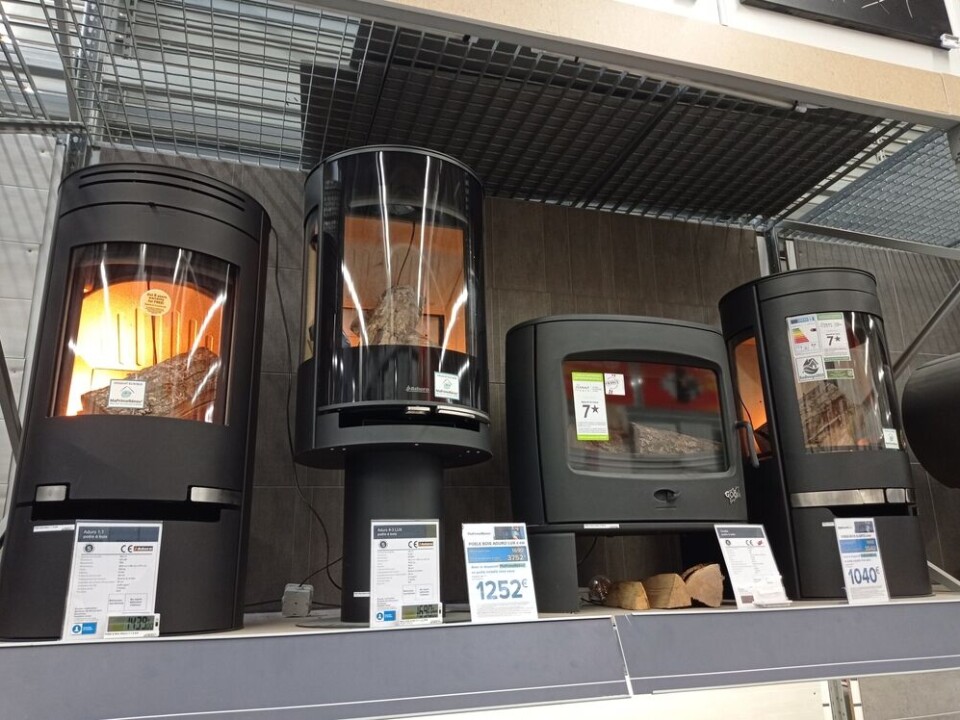-
Two rules to not fall foul of around vide-greniers sales in France
There are several regulations around what can be sold – and how - at these car-boot-style events
-
What are the rules concerning barking dogs in France?
Repetitive noises such as barking dogs can lead to fines – even if they happen during the day
-
New rules for cross-border workers in France
Unemployed workers have less leeway to refuse roles
Wood burning stoves: what are the rules in France?
Homeowners must follow the requirements of insurance companies and government standards

Wood burning stoves are subject to several insurance requirements as well as government standards and failure to adhere can leave homeowners with invalid insurance or even facing charges in the event of a house fire.
Fireplaces are regulated in France at several different levels. Lyon for instance, banned open fireplaces in April 2023 but allows wood stoves so long as they meet certain specifications.
The Île-de-France region (Paris and the surrounding departments) has similar rules, but allows decorative open fires.
In both of these areas, all new wood stoves must have the ‘Flamme verte’ energy efficiency rating, which is intended to minimise the fine particles they emit.
However, there are also national standards governing wood stoves, and failure to comply can leave property owners facing charges in the event of a house fire.
Read more: Boost the warmth from a wood stove in your French home
What are the standards for wood stoves in France?
The French building code follows the stipulations of the Documents Techniques Unifiés, including for the installation of wood stoves and chimneys. In particular, DTU 24.1 and DTU 24.2 recommend that wood stoves:
- Have sufficient ventilation
- Have sufficient sealing on the chimney flue
- Be mechanically stable
- Tolerate expansion due to heat
- Respect safety distances of 20cm all around the stove
While no law obliges homeowners to use a professional to fit a wood stove, only heating specialists can certify that a heating installation adheres to these standards.
DTU standards do not include any penalties but, if a wood stove does not meet their stipulations and causes damage to the property of a third party, they can be used as support in any ensuing legal action.
As a consequence, not adhering to these standards can potentially leave a homeowner exposed to criminal and civil actions in case of a house fire.
What are the requirements of insurance companies for wood stoves?
Insurance companies will only fully insure your home if your wood stove meets the DTU standards.
If you do not have a receipt or other documentation to prove that your stove was fitted correctly, then some insurers might require that it pass an inspection before accepting to insure you.
In case of a house fire, insurers will likely require proof that your fireplace was installed correctly before paying out.
What are the rules about sweeping the chimney?
You are required to have the chimney flue of wood stoves swept twice a year by a professional, who must provide a certificate (certificat de ramonage).
One of these two sweepings must happen during the period the chimney is used.
This rule, which was introduced in July 2023, applies both to homeowners, who live in the property and to people renting. The owner must also have the chimney swept each time a new tenant rents the property.
If you do not have your chimney swept by a professional, or if you do not have the certificates, you can face a fine of €450 and find your home insurance invalidated in case of a chimney fire.
Read more
How often do I need to sweep my chimney in French home?
Explainer: the rules for collecting wood from forests in France?























